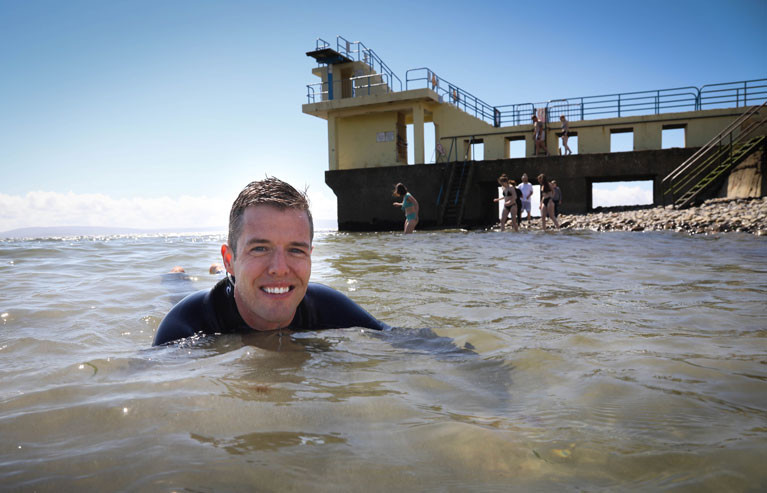Swimmers, surfers and paddlers are being asked to participate in research on the risk of superbugs which is being conducted by NUI Galway (NUIG).
The NUIG scientists are examining how superbugs are picked up and how the spread of antibiotic-resistant bacteria can be controlled.
Up to 300 volunteers are being sought – as in a group of 150 sea swimmers, surfers and other regular participants in sea, lake and river activities, and another group of 150 people who rarely take to the water.
The PIER study (Public Health Impact of Exposure to antibiotic Resistance in recreational waters) is being undertaken by the NUIG Antimicrobial Resistance and Microbial Ecology Research Group.
It is funded by the Environmental Protection Agency (EPA) and the researchers hope that the findings will “contribute to improving policy regarding environmental monitoring of antibiotic resistance and the release of waste containing superbugs to recreational waters”.
Sampling of bathing water only needs to take place once a month between May and September under the 2006 EU Bathing Water Directive, but the EPA says some local authorities test more frequently. However, testing for antibiotic superbugs does not take place.
Galway sea swimmers have been seeking more frequent testing and more transparency on results.
Principal PIER project investigator Prof Dearbháile Morris explains that “in healthy people, antibiotic-resistant bacteria behave very similarly to other common bugs and live harmlessly on the skin, in the nose or in the bowel”.
“This is called colonisation. As long as a bug stays on the skin or in the bowel, it usually does not cause a problem,”she says.
“However, once a superbug gets into a wound, into the bladder or into the blood, it can cause an infection that can be difficult to treat,” she says, and this happens to people with weaker immune systems, such as those in intensive care, the very old or the very young.
Special antibiotics are then required for treatment, as ordinary antibiotics do not work, she says.
“Unfortunately, superbugs can transfer easily from healthy colonised people to vulnerable people,” she notes.
“The more people who are colonised with antibiotic-resistant bugs, the higher the risk that these bugs will spread to vulnerable people and cause serious infection,” she says.
PIER’s co-investigator Dr Liam Burke says some superbugs are now very common in the environment, due to increased antibiotic use in humans and animals and the release of sewage, manure and effluent containing antibiotics and antibiotic-resistant superbugs.
“Although bathing waters are routinely tested for some bacteria, they are not tested for antibiotic-resistant bacteria, so we don’t really know to what extent they are present,” Dr Burke says.
“ PIER will look into whether people who regularly use Irish waters for recreation are at risk of becoming colonised with superbugs.”.
Anyone aged 18 or over who lives on the island of Ireland can participate, and more information is here
































































